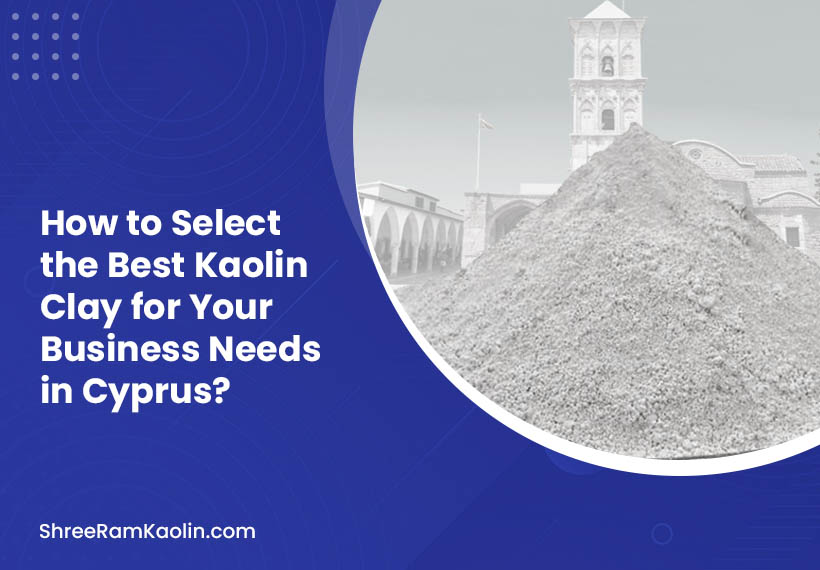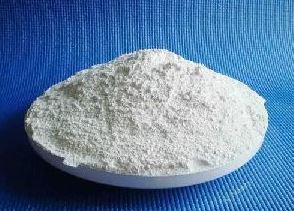How to Select the Best Kaolin Clay for Your Business Needs in Cyprus?

Selecting the best kaolin clay for your business can make a significant difference in your product’s quality and efficiency. Whether you’re in the Pottery, ceramics, or paper production industry, understanding the unique properties and applications of kaolin clay is crucial.
Let’s dive into how you can choose the best kaolin clay for your business needs in Cyprus.
Understanding Kaolin Clay
Kaolin clay, also known as china clay, has long been utilized by various industries due to its adaptable properties. Consisting primarily of the mineral kaolinite, its special qualities make this clay unique. But what exactly distinguishes it?
Properties and Uses of Kaolin Clay
Kaolin clay boasts a unique set of properties that make it invaluable in many applications. It’s known for its:
- Fine particle size
- High brightness and opacity
- Low conductivity of heat and electricity
- Chemical inertness
These characteristics make kaolin clay a go-to material in industries ranging from paper and ceramics to cosmetics and pharmaceuticals.
The Importance of Kaolin Clay in Cyprus
Cyprus’s Kaolin Industry
Cyprus has a rich history in kaolin production, with deposits scattered across the island. Kaolin production has long been an integral component of Cyprus’ economy, yet how might this impact your business operations?
Applications in Local Businesses
Cypriot businesses have taken great advantage of kaolin clay to employ it in traditional pottery production as well as industrial applications, using it in creative ways. Recognizing local market needs can give an advantage when selecting a suitable type of Kaolin.
Factors to Consider When Selecting Kaolin Clay
Purity and Composition

Kaolin clay’s purity can have a dramatic impact on its performance in your applications, so when selecting one, you must search for products with minimal impurities and composition that align with your unique requirements.
Particle Size and Distribution
Particle size matters! Finer particles generally provide better performance across many applications; however, your ideal particle size depends entirely on its intended use case.
Brightness and Whiteness
Kaolin clay’s whiteness and brightness are of crucial importance in applications where appearance matters, like papermaking or ceramics production, where brightness and whiteness play an integral part in success or failure.
pH Level
Kaolin clay’s pH level can enormously influence its behaviour in various processes; therefore, ensure you select one compatible with the use case in question.
Viscosity
The viscosity of clay plays an essential part in its processing. Finding an optimal viscosity level will make production smoother and more cost-efficient.
Types of Kaolin Clay Available in Cyprus
Local vs. Imported Kaolin Clay
Cyprus provides both locally produced and imported kaolin clay products; each has its own set of benefits from cost to quality considerations, so let’s find the one which may work best for your business needs.
Grades and Specifications
Kaolin clay comes in different grades that suit specific applications; knowing these specifications will enable you to make an informed choice when purchasing Kaolin.
Evaluating Suppliers in Cyprus
Reputation and Reliability

Cyprus’s small market can give insight into a supplier’s reputation. Do your homework and select one with proven reliability and consistency.
We found out Cyprus is a good place to buy Kaolin Clay. But if you can’t find good clay in Cyprus, you should consider Shreeram Kaolin as your export partner.
Quality Control Measures
What quality control processes does the supplier utilize to assure consistency and quality in the clay supplied to them? This may provide valuable insight.
Pricing and Availability
Cost should never be the sole deciding factor; quality must always come before cost for optimal business operation. To find a suitable product that fulfils these two factors.
Testing and Sampling Kaolin Clay
Importance of Sample Testing
Never skip the sampling phase! Testing samples can save you from costly mistakes down the line.
Key Tests to Perform
From XRF analysis to particle size distribution tests, we’ll cover the essential tests you should consider performing on your kaolin clay samples.
Environmental and Regulatory Considerations
Sustainable Sourcing Practices
Sustainable sourcing can be a significant advantage in today’s environmentally conscious market. Look for suppliers who prioritize eco-friendly practices.
Compliance with Cyprus Regulations
Ensure that your chosen kaolin clay and supplier comply with all relevant Cypriot regulations to avoid legal headaches.
Making the Final Decision
Balancing Quality and Cost
Finding the sweet spot between quality and cost is crucial. We’ll provide tips on how to strike this balance effectively.
Long-term Supply Agreements
Consider the benefits of entering into long-term agreements with suppliers to ensure a steady supply and potentially better pricing.
FAQs
What are the main distinctions between imported and local kaolin clay in Cyprus?
Local clay tends to have unique properties specific to Cyprus deposits, while imported options might provide unique specifications or locally unavailable grades.
Are there specific regulations in Cyprus about the use of kaolin clay food-grade products?
Yes, Cyprus follows European Food Safety Agency rules regarding mineral usage. Please check with your local food safety authority for guidance about mineral usage when creating food items containing this mineral.
Conclusion
Finding the appropriate kaolin clay for your business in Cyprus doesn’t need to be difficult or daunting; by considering factors like purity, particle size and supplier reliability, you can make an informed choice that benefits both products and processes, giving your firm an edge in this competitive market.

